Shōgun’s Anna Sawai Breaks Down Mariko’s Bold Move, That Fight Scene and Her True Feelings for Blackthorne
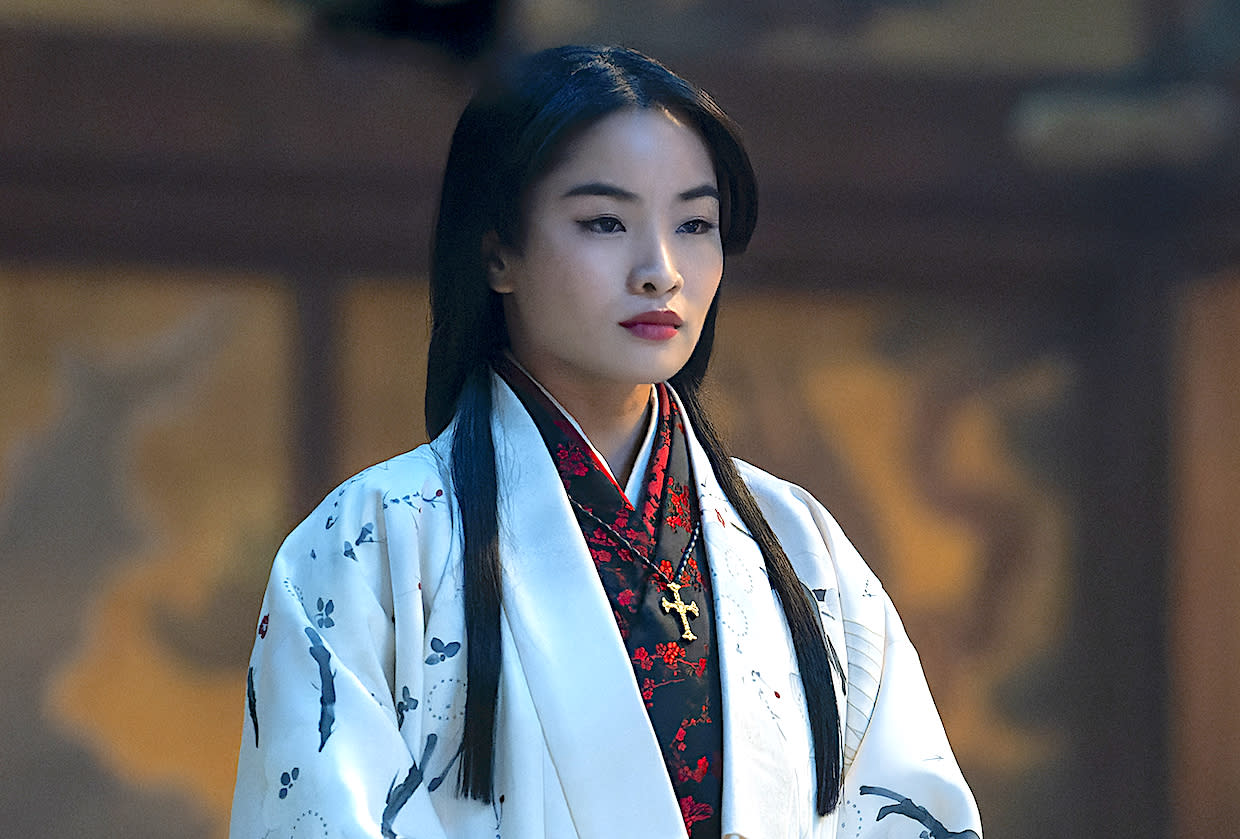
- Oops!Something went wrong.Please try again later.

Warning: This post contains spoilers for the April 16 episode of Shōgun.
More from TVLine
The Voice Recap: The Playoffs' Beginning Marks the End of the Line for Four Contestants
Alice & Jack Finale Recap: 'Til Death Do Us Part - Grade the Season
Welcome to Wrexham Season 3 Trailer Drops Days After Football Club's Second Major Promotion
Shōgun’s Mariko finally got her wish.
In this week’s pivotal episode of the FX samurai drama, the translator played by Anna Sawai swung into action, challenging Ishido to let her leave Osaka and report back to Toranaga. When he refused, she tried to leave anyway, even swinging a naginata blade at the castle guards to the point of exhaustion. When that didn’t work, she declared she would take her own life at sunset — and just as she was about to follow through, Ishido granted her permission to travel back home. She never made it home, though: Yabushige helped a group of assassins infiltrate the castle and close in on Mariko, with Mariko sacrificing her own life by putting her body up against a door loaded with explosives and declaring her death an act of protest just as the door exploded.
That was a lot to process, intellectually and emotionally, so TVLine reached out to Sawai to help us break down Shōgun’s very eventful penultimate hour. Read on to get her thoughts on Mariko’s sacrifice, the fight she put up at the castle gates, her loyalty to Toranaga — and her true feelings for Blackthorne.
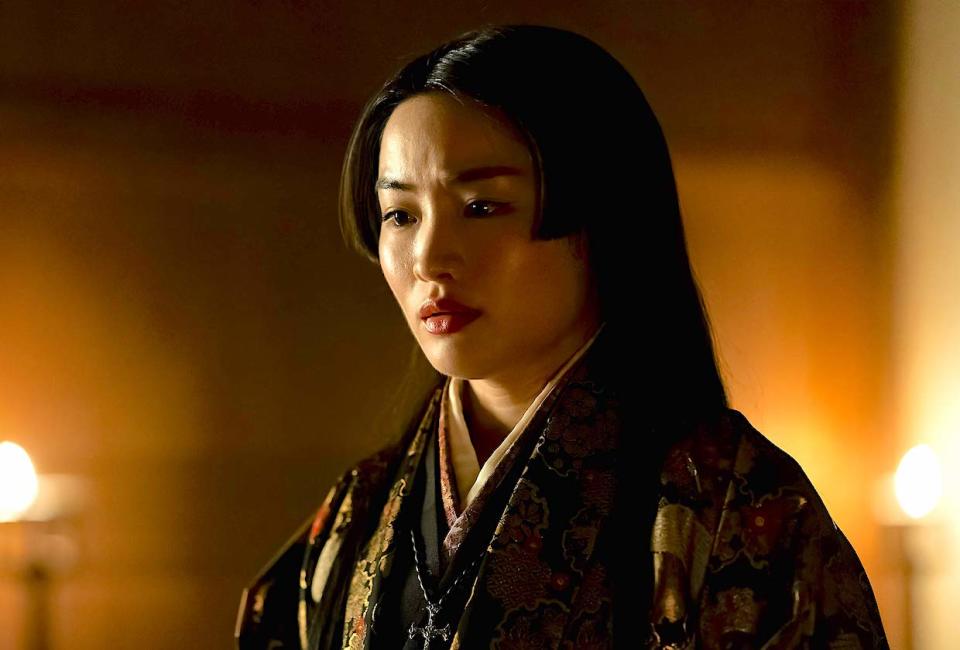
TVLINE | Unfortunately, this week’s episode was the final one for Mariko. I don’t know if you saw or read the earlier versions of Shōgun, but did you know that Mariko wouldn’t survive to see the end?
Yeah, I think when I auditioned, they were like, “There are no options.” [Laughs] This is so, like, industry, but: “There aren’t any options because she does finish in this season.”
TVLINE | There’s a lot of talk about fate in this series. Do you feel like this was always Mariko’s fate, not only to die but to have her death serve a greater purpose?
Absolutely. I think that’s what she always was looking for. And if she was living a longer life with no purpose, she wasn’t fulfilling her duties, then it wouldn’t have meant anything to her. Like, she would rather die if that meant being able to serve her lord. So yeah, I do believe that this was always her fate.
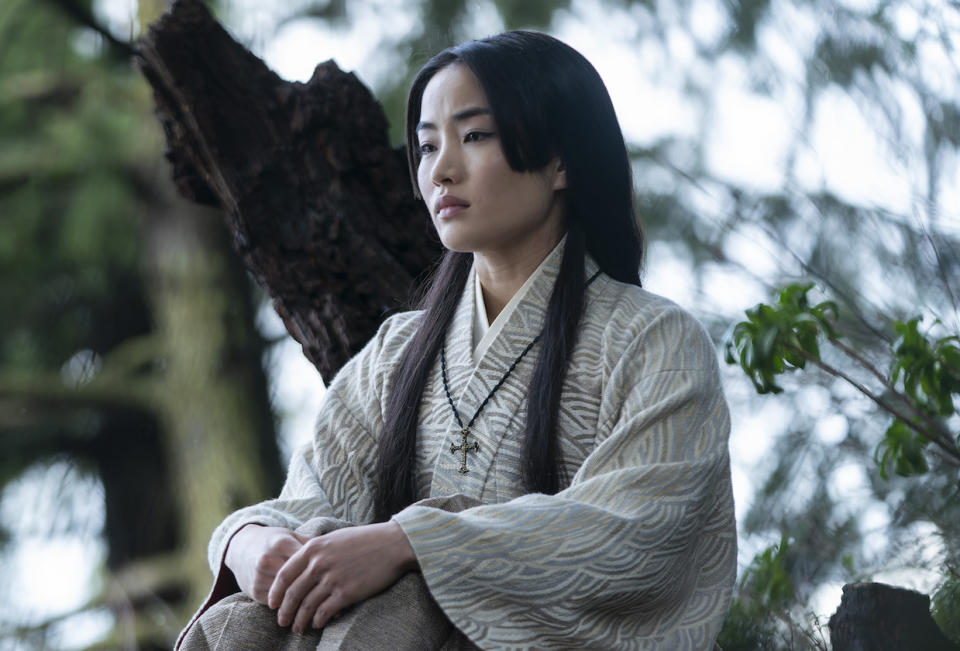
TVLINE | Her family history also played a big role for her. She was always made to feel ashamed of what her father did, but in this episode, she declared herself to be the father of a great lord. So do you think that she finally made peace with her legacy by the end?
Well, I don’t think that she ever thought that it was something shameful. I think that she believed that her father had done something that had to be done. But people viewed her family as a shameful family line, and so that’s what she has to live with. And I think because she doesn’t agree with the way that she’s viewed, it’s even harder for her. So we do see her talking to her son, who believes that she’s part of a disgraced line. And that is so unfortunate, that he doesn’t understand, that he doesn’t see it the way she does. But being Mariko, I honored her father so much, and I read about history and about Akechi Mitsuhide [the real-life warlord that inspired Mariko’s father], who killed Oda Nobunaga, and I’m very much Team Akechi Mitsuhide. Maybe because I played Mariko, but yeah, I think she feels very highly of her family.
TVLINE | Yeah, how much research did you do for this role? I know it’s a fictionalized story, but it’s based on a lot of real history.
Yes, well, I read the novel, and it changes the names on purpose because [book author] James Clavell, I don’t think, was trying… it wasn’t going to be a history book, you know. He was trying to create an interesting story based on these historical characters. So I did pick up certain history books, and I did read up on Hosokawa Gracia, who is the model for Mariko. But I would pick and choose when I wanted to go back to it, because if I had been too focused on being accurate on history, then I think that it would have kind of gotten in the way of creating this show.
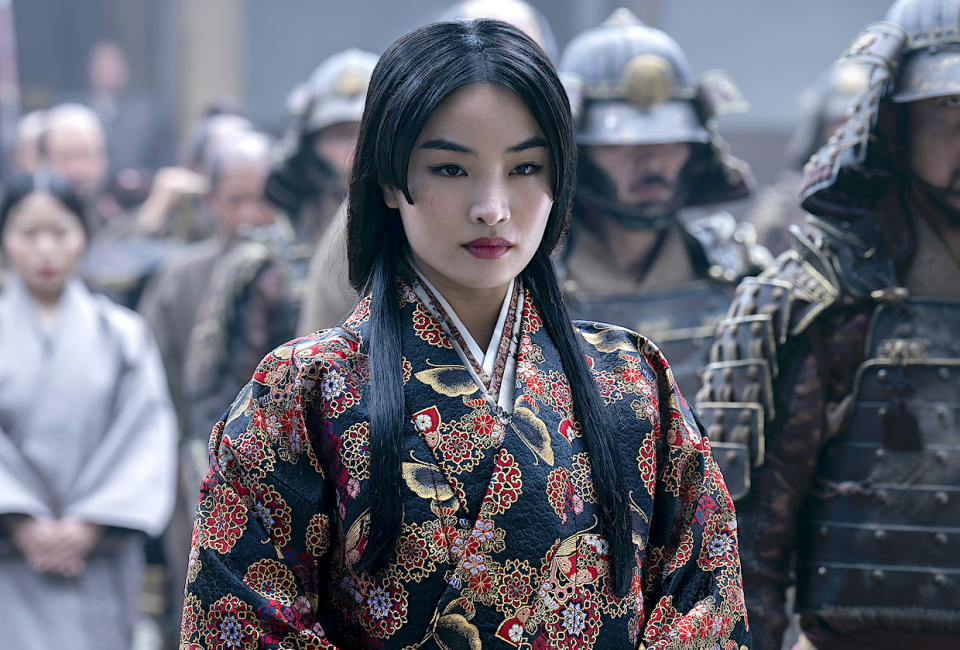
TVLINE | Mariko tried to leave Osaka, but she was stopped by Ishido’s men, and she ended up wielding a naginata and fighting back herself. What was it like shooting that scene? Was it as exhausting as it looked?
It was pretty tiresome, just because a lot went into it. Like, I was not only doing it physically, but like the mentality that she’s in. She’s going through so much, seeing the people on her side sacrificing their lives, and then falling to the ground and having to walk out with everyone staring back at her like she’s some insane samurai. But I also loved it. In Episode 9 in general, it just felt so liberating because she has so much clarity, and she is given permission to act this way by her lord. People don’t know that. And I also was playing it as: She’s approaching the gates knowing that they’re not going to kill her. She’s not afraid for her life. It’s more like she has to make a statement in this scene. So it felt pretty empowering.
TVLINE | The screams she let out during that scene… it felt like she was letting all of her anger and frustration come out all at once.
Oh my God, I was so… It kind of happened naturally. When I read the scene, and I saw that she was going to fight them, I did not imagine having those emotional outbursts. And then falling to the ground and you can hear her kind of like crying or like holding in her cry… That just happened on the day. I probably wasn’t even thinking about it when it was happening.

TVLINE | Mariko’s bond with Toranaga seemed especially close. Even when almost everyone else seemed to lose faith in him, Mariko never did. Why do you think that is?
I think, hmmm… that is a good question. I mean, he is her lord, and I think whatever happens, you follow your lord. She is a very loyal samurai. And he’s also someone who sees her father in a different light, unlike everyone else, who’s like, “Oh, he’s a shameful samurai.” I think that means a lot to her, and she believes in him, and that he’s looking at it in a bigger picture. So she doesn’t exactly know what he’s about to do, but whatever she can do to serve him, I think she’s willing to do it. Yeah, I think it’s just the belief that he has in him.
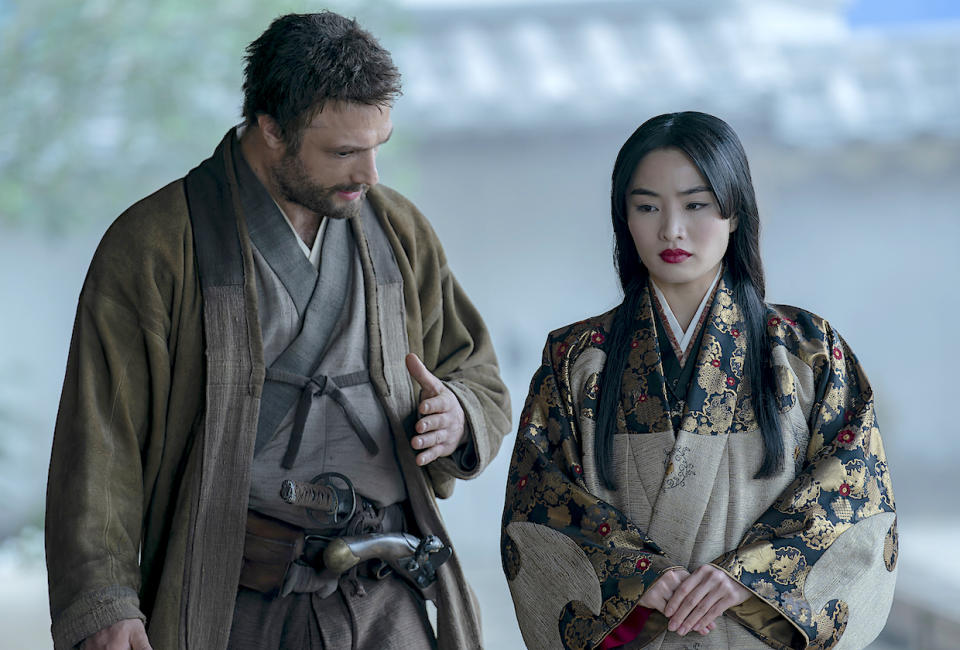
TVLINE | Mariko’s feelings for Blackthorne, they kind of went unspoken throughout this series. We saw little looks and gestures, but she never really put her feelings into words the way he did. What do you think her true feelings were for him, ultimately?
I think by the end, she really, really cares about him. But then love… I think, in Western countries and in Japan, it’s different, and also back in the day, it was even more different. So people here say “I love you,” but in Japan… yeah, nowadays, you kind of do say it, but then back in the day, I read this thing about people looking at the moon, and they would say, “The moon is beautiful.” And that meant “I love you.” And then the person who they were speaking to would respond by saying, “I could die happy.”
So the way they use language is very different. It’s very indirect. And also all the circumstances, like the conflict of her family and her religion and her culture, it’s all kind of stopping her from being truthful and open about it. So we never see her vocalize it, but I think you can tell from the way that she talks to him, it’s very different from how she talks to anyone else. They share this very intimate connection, and it’s because he sees her as a person and not as property. So even without words, I think it’s very, very apparent.
Got thoughts on this week’s Shōgun? Predictions for next week’s finale? Share ’em in a comment below.
Best of TVLine
Get more from TVLine.com: Follow us on Twitter, Facebook, Newsletter

